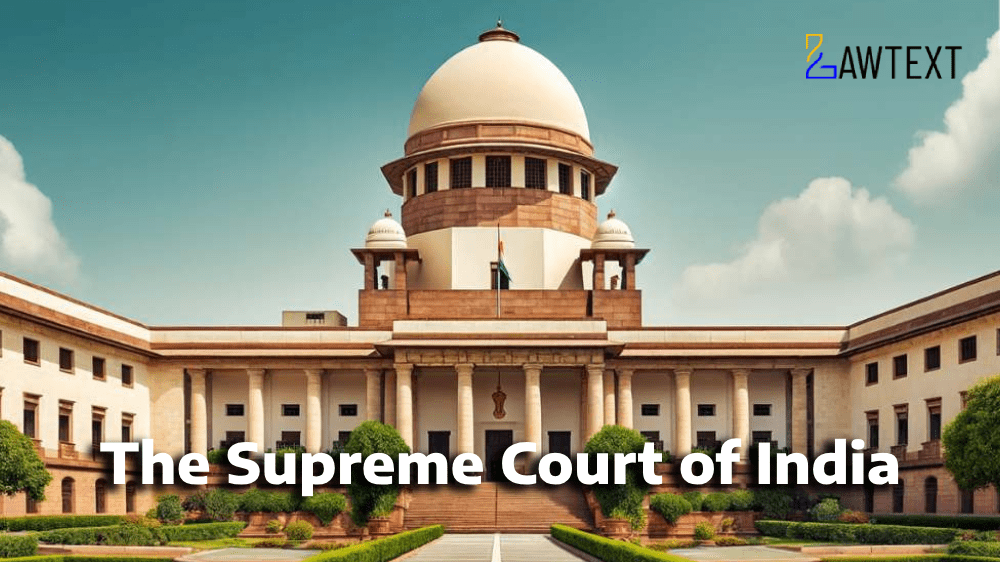CASE NOTE & SUMMARY
The Supreme Court expunged adverse remarks and directions issued against a District and Sessions Judge for allegedly not adhering to procedural directions in bail matters, holding that such directions were not mandatory. It emphasized that judicial independence and discretion cannot be curtailed by mandatory formats imposed by higher courts.
The appellant, Ayub Khan, a District and Sessions Judge, challenged adverse remarks and directions issued by the Rajasthan High Court for not adhering to specific guidelines regarding bail applications. The Supreme Court clarified that such guidelines are suggestive, not binding, and emphasized judicial independence.
1. Introduction and Appeal Context (Paras 1-2)
- The appellant, Ayub Khan, a judicial officer, challenged the Rajasthan High Court's adverse remarks and administrative directions related to his handling of bail applications.
- He sought expungement of these remarks and directions.
2. Background of the Case (Paras 3-4)
- The High Court issued procedural directions in Jugal Kishore v. State of Rajasthan mandating trial courts to incorporate detailed antecedents of accused in tabular form while deciding bail applications.
- The appellant did not strictly adhere to these directions, citing excessive workload.
3. High Court's Actions and Directions (Paras 5-6)
- The High Court found the appellant's explanation unsatisfactory and directed him to submit reports on bail applications disposed of during a specific period.
- Adverse remarks were passed, labeling the appellant’s actions as indiscipline and potential contempt.
4. Supreme Court’s Observations on Judicial Independence (Paras 8-12)
- The Supreme Court held that procedural directions like those in Jugal Kishore are suggestive and cannot be mandatory.
- Judicial discretion cannot be curtailed by imposing formats for orders, and such interference undermines judicial independence.
5. Criticism of High Court's Approach (Paras 13-18)
- The Supreme Court found the High Court’s actions unwarranted, stating that adverse remarks and strictures against judicial officers should be avoided unless absolutely necessary.
- The High Court's orders were termed an unnecessary waste of judicial time and damaging to the appellant's career.
6. Supreme Court’s Final Directions (Paras 19-20)
- All adverse remarks against the appellant were expunged.
- Directions issued by the High Court for administrative action against the appellant were set aside.
Acts and Sections Discussed:
-
Indian Penal Code, 1860:
- Section 307 (Attempt to Murder)
- Section 34 (Common Intention)
-
Arms Act, 1959:
- Section 3/25 (Possession and Use of Firearms)
-
Code of Criminal Procedure, 1973:
- Section 482 (Inherent Powers of High Court)
-
Constitution of India, 1950:
- Article 227 (Supervisory Powers of High Court)
Ratio Decidendi:
- Directions issued by higher courts concerning procedural formats for bail orders are suggestive, not mandatory.
- Judicial independence and discretion must be preserved, and strictures on judicial officers should be avoided unless absolutely necessary.
- Adverse remarks passed on the judicial side cannot justify administrative action unless supported by due process on the administrative side.
Subjects:
Judicial Independence and Procedural Compliance in Bail Applications.
Judicial Accountability vs. Independence.
Citation: 2024 LawText (SC) (12) 176
Case Number: CRIMINAL APPEAL NO. OF 2024 (Arising out of Special Leave Petition (Crl.) No.10587 of 2023)
Date of Decision: 2024-12-17
Case Title: Ayub Khan Versus The State of Rajasthan
Before Judge: (Abhay S Oka J. , Augustine George Masih J. )
Appellant: Ayub Khan
Respondent: The State of Rajasthan

